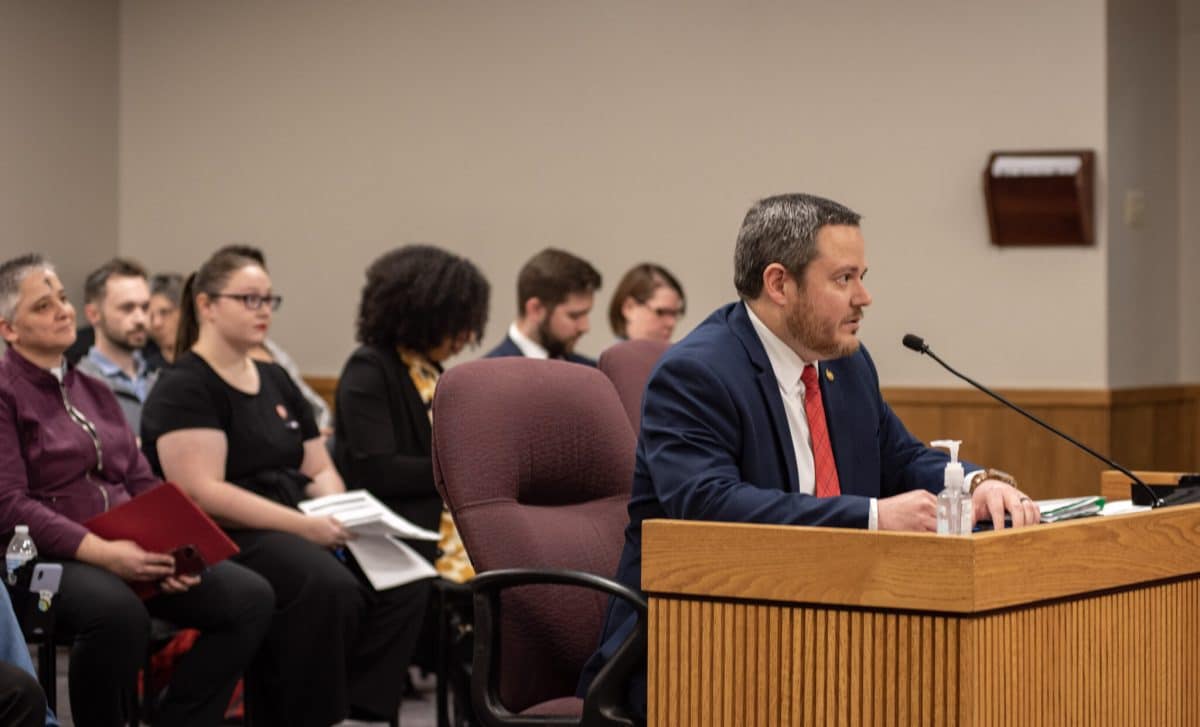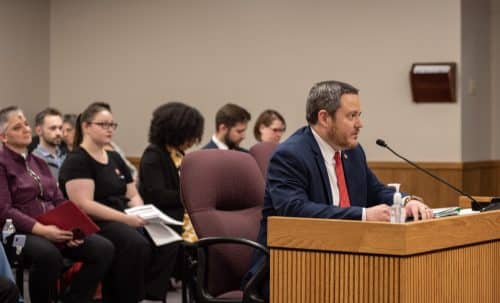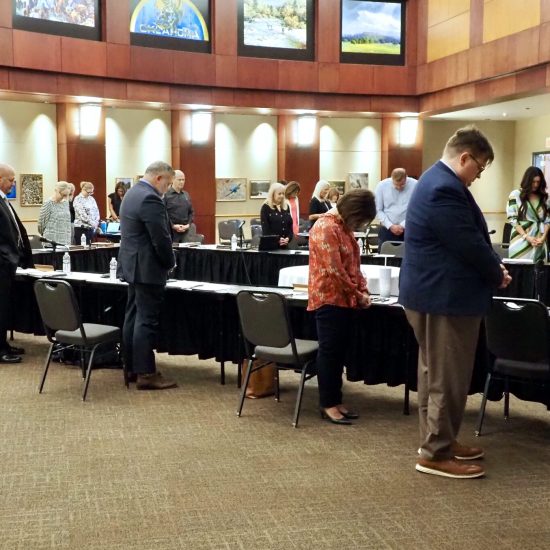
A bill that would allow religious and other belief-based organizations to refuse membership to certain students raised concerns Wednesday evening that it could open the door to discrimination on college campuses.
The legislation, sponsored by Republican Rep. Brad Hudson of Cape Fair, would prohibit public colleges from denying funding to “belief-based” groups based on their viewpoint or membership requirements. Those in opposition of the bill say it would allow groups to discriminate, especially against LGBTQ students.
Last year, a similar bill passed the House in a vote split along party lines, but it never came up for a vote in the Senate. Similar bills have been filed by Missouri’s lawmakers for nearly a decade.
Previous iterations focused only on religious groups, but Hudson’s bill expands language to “belief-based” organizations, including those with political beliefs.
“Across the country, belief-based student groups on many public university campuses have been told that they have to change their beliefs in order to be registered as a student organization,” Hudson said.
Student groups across the country, Hudson argued, have faced litigation for requiring leaders to uphold the club’s beliefs.

Rep. Brad Hudson, R-Cape Fair, introduces a bill that seeks to guard “belief-based” student organizations during a House committee hearing Wednesday evening (Annelise Hanshaw/Missouri Independent).
Rep. Kemp Strickler, D-Lee’s Summit, asked Hudson why his bill addresses both “belief-based” and “religious” clubs.
“I’m curious about the thought process and the implications of it being a bit more broadly worded as belief based,” he said.
Hudson said his bill is not a religious bill, but a First Amendment bill.
“My bill could provide necessary protection for a liberal group or a conservative group, or you name it, any kind of belief-based group that is able to form on a college campus that would require this protection under the First Amendment,” Hudson said.
Rep. Raychel Proudie, D-Ferguson, inquired whether the bill would allow discrimination against protected classes, such as disabled people.
“I do want to make sure that we are, in whatever we’re doing, we’re also being compliant with what we are already saying are protected classes of individuals,” she said. “I don’t want anyone to get in the habit of saying well, ‘We believe that only able-bodied individuals can join.’”
Hudson said other states have enacted similar legislation, and he has not seen “despicable clubs” pop up there.
Those supportive of the bill said it could reduce the number of lawsuits student organizations face.
Curtis Cole, a campus access specialist with Chi Alpha Campus Ministries, alleged his ministry has faced threats of being kicked off Southeast Missouri State’s campus for their “sincerely held religious beliefs.”
“For many years, Chi Alpha chapters have faced being kicked off campuses,” he said.
He was in favor of the bill, saying his organization has undergone litigation in multiple states.
The ministry’s website has articles calling homosexuality a “sexually immoral lifestyle,” and student newspapers at colleges with Chi Alpha organizations have published accounts of student leaders alleging the club was unaccepting of their sexuality.
Lance Kinzer, director of policy and government relations for the 1st Amendment Partnership, said belief-based groups usually face issues when they file paperwork to become an organization.
“Either a Student Government Association or the university itself will say, ‘We have concerns about that point of view, so we’re not going to recognize you.’ And so that’s where the litigation has turned,” he said.
Jeremy Cady, state director for Americans for Prosperity, said the bill would benefit the variety of student groups on campus. He argued the legislation would still allow universities to flag problematic beliefs.
“This does not impact which groups can be on campus; this does not impact which beliefs those groups can hold,” he said.
Rep. Kevin Windham, D-St. Louis, argued the bill text says otherwise.
“No public institution of higher learning shall take any adverse action against a belief-based student association or an applicant to be recognized as such:… On the basis of such association’s viewpoint or the expression of the viewpoint by the association or the association’s members,” the bill says.
“I read it as x university cannot stop the Klu Klux Klan from being on campus,” Windham said.
The majority of those who came to testify were in opposition to the bill.
Rev. Michelle Scott-Hoffman, director of campus ministry Ekklesia at Missouri State University, said her organization is more inclusive than others.
“We often end up helping to pick up the pieces of harm and devastation in the lives of students who have been rejected by other ministries because of their sexual orientation, gender identity or other things,” she said.
She said these organizations are funded by taxpayer dollars and the students’ activity fees, and she doesn’t like the idea of LGBTQ students paying toward discriminatory organizations.
“What we can’t do though is codify the ability of an organization to enjoy the benefits of being a recognized student organization that are funded by taxpayer dollars — all taxpayer dollars: gay and straight, cisgender and trans, Christian, Muslim, Jewish, Buddhist and more,” she said.
College students testified, saying they wanted equal opportunity to join any club regardless of their sexuality or gender identity.
Brian Kaylor, a Baptist minister who has previously served as a faculty advisor to a student group, also had concerns. He pointed to a U.S. Supreme Court case that said a law school’s policy requiring student organizations accept all students did not violate the First Amendment.
“We’re not just talking about the rights of the student groups, but we’re talking about the rights of all the students at the university not to be discriminated against,” he said.
After two hours of testimony, the hearing concluded without action from the committee.
GET THE MORNING HEADLINES DELIVERED TO YOUR INBOX
Missouri Independent is part of States Newsroom, a network of news bureaus supported by grants and a coalition of donors as a 501c(3) public charity. Missouri Independent maintains editorial independence. Contact Editor Jason Hancock for questions: info@missouriindependent.com. Follow Missouri Independent on Facebook and Twitter.






